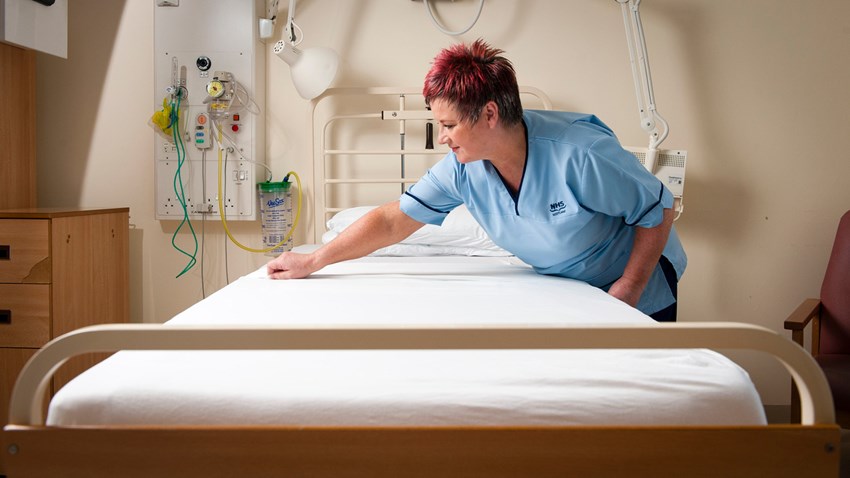Previous
Maternity care assistant
You can become a maternity support worker by applying for a vacancy on our recruitment website or doing a Modern Apprenticeship.
Maternity support workers assist midwifery teams in providing high-quality clinical and person-centred care to women, birthing people, and families. Supervised by a registered midwife, they work in a range of settings, including:
Maternity support workers do not make clinical decisions about care. Instead, they assist in delivering personalised plans centred on the individual needs of women and birthing people, as well as their antenatal, intrapartum, and postnatal care choices.

To become a maternity support worker, you'll need a good standard of education. Useful subjects include:
Speak to your guidance teacher or careers adviser about subjects offered at your school.

You may find it helpful to get some healthcare experience by doing a work placement or volunteering. You’ll get training, increase your knowledge, and learn new skills. This could help you when applying for a new job with NHSScotland.
A Modern Apprenticeship will help you get the knowledge, skills, and experience you need to reach your career goal.
All Healthcare Support Modern Apprentices study 3 mandatory units:
You'll choose your remaining units from the clinical pathway options for midwifery.
As a maternity support worker, you’ll provide clinical and therapeutic support as part of a multi-professional maternity care programme. You’ll also create and maintain supportive relationships with women, birthing people, and their families.
Your main tasks could include:
You’ll need these skills:
You could work with:
You could work in:
When joining the NHS, you'll work through the Mandatory Induction Standards. These standards are designed to help you work safely and must be completed within 3 to 6 months of employment. They will also support you in your first steps as a new maternity support worker.
Find out about the Mandatory Induction Standards for new healthcare support workers.
In your role, you must also complete work-based training to comply with healthcare delivery procedures and protocols. This could include:
Your career development will be planned and reviewed with your manager annually through the Personal Development Planning (PDP) cycle.
Learn more about preparing for your personal development review.
While working in the NHS, you’ll have access to learning and development opportunities to help you progress in your career. This could mean taking on more responsibilities or moving to a senior maternity support worker role.
If you're a maternity support worker, you could gain additional qualifications to become a maternity care assistant. The University of the West of Scotland delivers the Certificate of Higher Education Maternity Care Assistant Programme at SCQF level 7.
If you’re a maternity support worker or maternity care assistant, the following qualifications are recognised entry options to pre-registration undergraduate midwifery degree programmes:
Find out more about routes into midwifery for support workers.
The Royal College of Midwives is a trade union and professional organisation that supports the whole midwifery team. Find out more about the RCM.
Published: 28/03/2023
Last updated: 22/07/2024
Part of: Explore careers
Topic: Healthcare support workers

Discover the skills and qualifications you’ll need for each role and what the work will be like.
Explore careers
We'll guide you through the recruitment process, from applying online to interview preparation.
Discover more